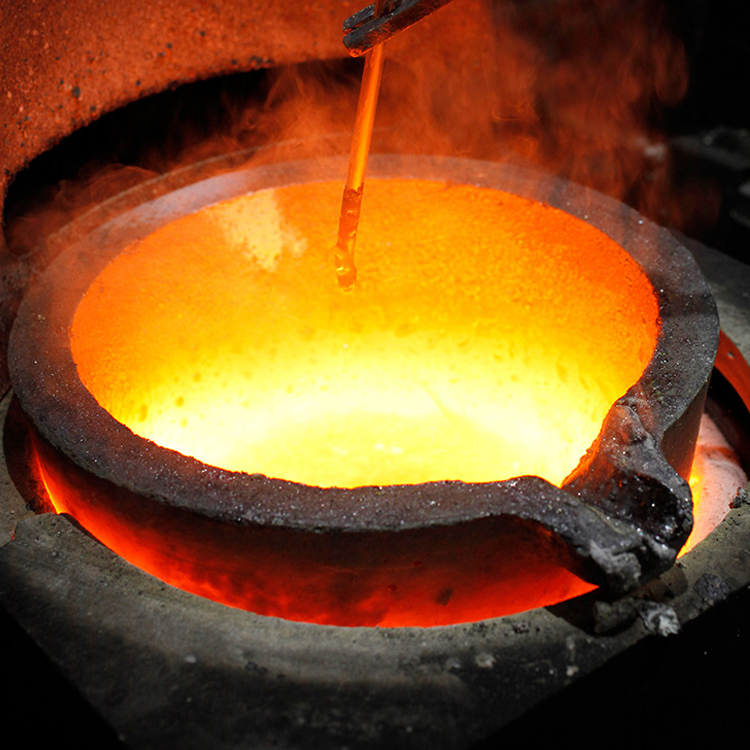Thanks for coming to my TED talk.
Society also needs to cut back on absolute energy consumption too. Transportion is a major sector where energy is just being wasted, Teslas arnt the answer, Trains are!
I think ultimately we also need to synthesize the urban-rural divide towards semi-self-sufficient communes that allow residents to live, work and enjoy leisure time where they are. Ideally, the waste heat of production should go towards heating/cooling homes in walking distance. Perma-cultures instead of empty lawns. Nice, communal apartment complexes instead of isolated (and badly insulated) stand-alone houses. Common spaces for leisure, coming together and organizing these micro-communities.
We kinda do be needing some of that socialism or it's just going to be barbarism with a green veneer.
A big aspect of socialism which I think goes not said enough is individual freedom. With the enhanced individual freedome & time granted to an individual, they would naturally spend time improving their dwellings and alot of people would take part in gardening. Our house is in a Canadian subdivision, but my family were farmers in India, my grandparents have a quite extensive vegitable garden, of which a good 100 sq ft or more is on city property (no one has given us bother, the rear end of our house is towards a green space).
I would love to partake more often, but we gotta work till we die lol
Yes but I meant as the steam was the direct source of locomotion (like 19th century steam engines) rather than nuclear>steam>electric
I think a lot of people are missing a key part of the energy systems conversation, which is storage. Daddy Musk has us believe the future lies in expensive, high-tech lithium-ion batteries.
Over 95% of global energy storage is in pumped-hydro facilities. They are anywhere from 70-87% efficient, compared to lithium-ion batteries at 80-90% efficient.
However they last a lot longer, are much easier to scale, and they don’t rely on extremely limited materials that only exist in certain places (Ugandan cobalt, right? Bolivian lithium? Oh and you probably haven’t heard about the colonialism of ‘Canadian’ uranium). Not to mention the extremely toxic battery factories.
Pumped-hydro storage is the future of energy storage, just as it’s the present. 95% of global energy storage haha, you can’t argue with the practicality of something like that. And you can just repurpose dead mines. All you do is fill them with water haha. It's not exactly an open-pit lithium mine
Which means that renewable energy generation systems like wind are viable alternatives to non-renewable nuclear energy. Because pumped-hydro can flatten the curve and help supply meet demand. And if we can do without the 500,000-year complexities of nuclear waste, we are ethically required to.
How does one create a warning sign explaining radiation to all the different possible peoples who will live here in 10,000 years, let alone 500,000 years? It's simply impossible. Just as is creating a storage facility guaranteed to self-maintain for that long.
This tbh. Also, you can totally make batteries without lithium, they're just not going to be as light. Which isn't really an issue for stationary storage. As an example, Nickel-Iron also has the advantage of not being flammable - which is kinda desirable for home applications anyway.
Edit: Also also, on extremely productive days in terms of renewable energy, you can just make hydrogen. Not the most efficient but that you can simply burn or turn back into electricity again.
So it would be no big deal if someone found a spent fuel rod in 10,000 years? Maybe used it as a source of undying heat? Explain :)
-
There are fuel mixtures that dont create as much waste( not used now because we are using left over bombs from Russia)
-
Waste can be reprocessed and used as fuel (it's not done now bc it could theoretically be used for bombs)
-
The waste that is generated decays at different rates. One of the more dangerous materials cs137 has a half life of 30 years, so in 210 years all the cesium is gone (or it's at back ground radiation) plutonium has a half life of 24 million years, but if it's reprocessed it will be used as fuel and knocked apart into smaller elements that decay faster. This is why the fuel rods sit in pools for the first 10 years or so to decay after that they can be moved to dry cask storage.
-
It's not that much trash... An Americans life time radioactive waste (under current energy consumption) would fit in their hand.
-
The most dangerous part imo is the mining and not because of radiation. Because of heavy metal poisoning. My college had a nuclear reactor and I've touched low enriched uranium. It was normal metal. There are stories of people touching high enriched uranium and it's kinda warm.... The problem. Is it is like lead. It will fuck up your insides and kids. See what happened after dessert storm when they made munitions out of uranium or look at the deviation in the 4 corners region on the indians there.
-
The waste could be used energy. Probably not much tho. There are things called rtg ...radiation? Thermal generators which use thermoelectric ....magic to make energy but may not be worth it
-
There are different types of radiation. Some are worse then others. Nuclear engineers practice " the cookie test".
Four cookies made of radiation you have to eat one, put one in your pocket, hold one in your hand and throw the other across the room. Which do you do?
There is also amounts of radiation to take into account. For example as a person working with radiation I can take 5 REM a year for the rest of my life and most likely never get cancer from exposure to those sources. In fact I would also rather take that bargain and over the course of a 50 year career get 250 REM instead of getting CORONA once.
So most of the issues are weaponization. I wonder if that is likely to ever happen over the next, potentially, millions of years? Hahaha
Look, it's just dangerous. It's not a boogeyman, but it's not as safe as water. Or wind. Viable alternatives exist, I think they're a wiser choice overall. Nuclear made sense before we had good wind and solar, tech, maybe, but there's just no point now. Plus, whether we choose to remain nuclear or not, we'll run out of fuel some day. It's non-renewable.
You gotta envision all the crazy, horrendous shit people will do over the loong, long stretch, which is hard to do I think. You basically have to assume that every terrible thing that could happen, will, over those long time frames. We can't know, so we have to play it as safe as possible, imo. We'll probably have like 10 mad maxes and 10 civilizations in that time. Gotta cover all the future peoples' bases, while we can
(also: great post . )
Dessert Storm sounds like it would be the American version of the Great British Bake-Off
-
That's dope. Nothing quite like that. It's like how bicycles are ~99% efficient; just one of those weird, archaic things you would never expect to work as well as it does.
Only thing I’d say is that it’s probably not that scalable for grid storage. Like, they would take a lot more resources per watt to make en masse than, say, a pumped-hydro reservoir. All you need is one pump and one turbine, basically.
That’s why batteries and things like that haven’t really become a part of grid storage. We just need to store a LOT of energy. Lithium-ion batteries are efficient, sure, but they just take so many resources and so much labour to make per watt of storage, that they just can’t compete with a big lake hahaha
Wheels are already the common tech for overflow storage (which isn't the same as general storage, but proves the concept)
So cool. My friend's dad has like an antique car that has one of these in it to save momentum energy when you're coasting/decelerating. Just such a wild concept haha
They also fail catastrophically if they snap. The biggest thing holding back flywheel storage is the danger of spinning something really really big, really really fast. Like if a flywheel that powers a building fails, and it can due to material weakness, it will take out the entire building. On a household scale, you don't want shrapnel flying around at more than 10000 RPM. For safety they're buried underground, and have other safety features to stop safely but that increases cost. I think they're mostly used for grid regulation.
Flywheels are for grid level storage, which is the primary problem holding back renewable sustainables.
Still a lot less effective than just building a pellet reactor.
I think they're mainly for short term regulatory storage, since they can be charged and discharged quickly. I don't think anyone wants to store an entire city's power in flywheels.
you probably haven’t heard about the colonialism of ‘Canadian’ uranium
Please inform me about this, I talking about nuclear power an hour ago and one of my friends used home grown uranium as a positive point.
Well, Canada has been the world’s largest producer and exporter of uranium since the world started needing it, right? (in 2009 Kazahkstan overtook Canada)
There are lots of mines in Canada, though one really big one that is the main one, responsible for 75% of Canada’s uranium.
I don’t think it would surprise you to hear that the Indigenous peoples of those places weren’t consulted. Nor do they really benefit. And the mines both take up a lot of space and are quite toxic. And mines don’t really benefit local Indigenous peoples. They usually see actually no profit, maybe a few jobs that last as long as the short-lived mine.
And when the mines are empty, like most of them are at this point, they’re just abandoned hahaha as is. No cleanup of the toxic dangers. No efforts made to rehabilitate the ecosystem. The mining company just moves on to the next one.
So, almost unanimously, Indigenous peoples have fought against uranium mines. And who could blame them. They do nothing for the community, and they devastate the land, leaving behind a toxic legacy that will last for generation after generation.
But, the canadian government doesn’t respect that, obviously, despite being legally obligated to by the treaties. Instead, mining companies are given free license to show up, exploit, and leave again, over and over, and have done so since like the 1930s.
Now I believe all the uranium mining in Canada is exclusively in Saskatchewan, and mostly in the north. Basically, my issue with it is that it’s just exploitative and harms the land and the water that people rely on, all while benefiting basically no one who lives there, just the mining corporation, and inevitably leaving behind a toxic legacy.
Indigenous communities near these mines should be rich af off of royalties, but instead they get little to nothing and remote reserves are some of the hardest places on earth to live on. Some of the worst poverty and housing crises in Canada are on reserves that are like a half-hour drove to some of the richest uranium/diamond/what have you mines. It's mind boggling, colonial, and extremely fucked up. Like, I don't know if you know of Attawapiskat First Nation, but they have tonnes of problems of poverty, there's like 20 people per house in these super ramshackle homes.
Guess what's a one-hour drive from their reserve? Literally a De Beers diamond mind, reaping extreme profits while the community owns that land lives in extreme poverty. It's possibly the most localized extreme in economic inequality I know of, frankly. That is what mining in canada means. :af-heart:
edit: the province of ontario famously receives 0 dollars in royalties from De Beers for that mine, as well. One year ontario got a couple hundred bucks, I believe :gui:
This is also the Australian situation (we also have the largest Thorium supply. got piles of the stuff in the slag from our Solar Panel silicon mines.
There was this really powerful case like last year, where the local Indigenous community was giving its two cents in a consultation for a site to bury nuclear waste.
The local band council Chief said, publically, something along the lines of ‘you have to imagine how having this toxic radioactive waste under our feet will effect the mythology of people in the future, how people will relate to the land and the stories we’ll tell.’
They said it a lot better than that, but it was such a based, long-term-thinking perspective that was entirely different from the other voices in the room
Anyway, this story is utterly unique because, for whatever reason, the nuclear organization decided ‘we will not do this project without the consent of the Indigenous peoples of this place’.
I suspect it’s because they knew the long-term nature of a nuclear waste burial site, and they weren’t willing to deal with backlash in 100, or 1000 years when the power dynamics here are less colonized. So they wanted consent. My theory
Regardless, the Indigenous community voted and said no, obviously, so now I guess they’re going to go ask another First Nation somewhere else hahaha it was a really positive moment in terms of Indigenous people asserting their voice, though, and actually being heard. Felt like a turning point, to me anyway
Nuclear power is not viable under capitalism for really boring reasons related to project turnaround time and financing. You'd need at least a heavily pro-infrastructure socdem government to make it happen. Or socialism.
very true actually, building reactors is a multi decade endeavor and something a lot of pro nuclear leftists forget about re the urgency of climate change (me included)
Multi-decade is a bit much. They typically take 5-6 years to construct. Some plants take significantly longer, but having a few prominent counter-examples is not the same thing as an average.
The big problem is that this is 5 years of not making any money, instead losing money on whatever loan was used to finance the project. If you're running an energy company, you could instead build a gas power plant that's already showing a profit by then and paying its way towards your next project. This is only a problem under a capitalist mode of finance, but that's the one we're using, so it's a problem we have.
In terms of physical logistics, we're not going to solve climate change in a five year flurry of building renewable power plants either. Unless there's some magic tipping point within the next few years that's avoided with a partially completed renewable grid, it makes sense to prioritize whatever creates the most carbon-free kilowatts per amount of effort.
It was a multi decade endeavor in the 70s.
Now, it's just a political hurdle.
It would just take 15 years for the first plant we start planning now to go live, which is a little bit late.
Na, it would take 15 years to scale the institutes of Nuclear engineering education to even be able to get the people to work the plants.
Not to mention everything else wrong with nuclear in the short term. We need socialism just to figure out how to make nuclear safe for everyone.
Don't fall for the nuclear lobby's propaganda! The Koch's own most nuclear tech in the US.
Lmao what does this even mean? Do you actually know anything about nuclear power or are you talking out of your ass?
Ionizing radiation emission from nukes is extraordinarily low, an order of magnitude better than coal and natural gas plants. With good maintenance and proper storage of spent fuel it is quite literally THE safest mode of non-renewable power.
The Kochs own nukes but they don't really care about them, the culture wars they can spin up for the coal lobby is far more effective as they have much more invested in the continuation of fossil fuels. There's a lot of terrible people involved in the nuclear power industry. That doesn't erase the appeal of the technology itself.
NUCLEAR HOT TAKE INCOMING
Nuclear power is libertarian nonsense.
Americans' need to understand that you consume way more energy than is humanely necessary. It's not a pleasant conversation for Americans to hear, but America's energy consumption is entire unsustainable and going to be a major problem going forward.
Tackling the Commodity Problem and the Climate Problem have to go hand in hand.
We can't continue to let countless pointless video game and video hosting servers running, endlessly burning coal.
We can't let specialty cannabis and organic lettuce gardens continue to grow massive crops during the winter.
We can't pick and choose which parts of the world get more comforts than the other.
We can't pick and choose which parts of the world have to risk nuclear meltdown or runoff.
When we say that wind, solar, batteries, geothermal, tidal, etc combined could never keep up with global energy demands we need to stop acting like our demand for energy is the independent variable.
The human race needs to stop its endless consumption.
I mean, countless studies have shown that combined wind, solar, and hydro could meet current energy demand. Which doesn't make it a challenge as if we should keep up current demand hahaha. We have an ethical obligation to reduce our human footprint as much as possible; half of species are gone extinct. We are not being good members of the community.
Yes but just central planned community/localized gardening would reduce our energy demands.
A lot of ecological repair work would also involve less time in front of a computer and more time outside planting things and digging trenches.
Ideally, we would have armies of people leading ducks through zucchini gardens.
My dream job is using my degree in ecology to help heal the land all around me. Unfortunately, no one's paying for it.
Sure thing star_wraith! Asking for the source is better than that user running around downvoting literally every comment that has a perspective other than ‘nuclear power is the only possible path forward, I swear’ hahaha uuuuh
It’s kinda country-by-country. Usually the inventory studies are done on the national scale. I remember seeing one for my country and it was like ‘whoooa, we actually could do it?!!’ Canada has nuclear power, but 58% of our power comes from hydro.
But here’s one looking at all of north america which finds, even when you consider the economics of doing it under capitalism, it’s possible to do it by 2030. It is entirely technlogically and economically feasible, even in the most consumptive place on earth, it is only a matter of political will. This is a really good, in-depth study.
There are, genuinely, countless studies like this haha there exists multiple for every country and region of the world. It’s well-established science now, even though the literature is as pay-walled and difficult to access as always hahah. This one’s free tho :)
Here's a very condensed meta-analysis that includes 139 countries
Counterpoint , astronomical amounts of power will be needed for desalination and carbon capture technologies to stop climate change.
When we say that wind, solar, batteries, geothermal, tidal, etc combined could never keep up with global energy demands we need to stop acting like our demand for energy is the independent variable.
Thank you. I'm quoting this to my family.
wind, solar, batteries, geothermal, tidal, etc combined could never keep up with global energy demands
This is false. Solar alone is more than enough energy. An hour of solar energy is equal to current global annual energy consumption. Two months of sunlight incident on land (assuming 5 hours of sunlight a day on average, at 1kw per square meter) amounts to more energy than remains in fossil fuel reserves.
If anything, though, this is an even worse indictment of capitalism than the idea that current energy usage is unsustainable--we could be powering our society in a way that doesn't wreck the entire planet, but we don't because it's cheaper not to.
When we say that wind, solar, batteries, geothermal, tidal, etc combined could never keep up with global energy demands we need to stop acting like our demand for energy is the independent variable.
Which is why we need nuclear...
Friendly reminder that both China and India have up to 40% of their energy coming from renewables + nuclear, with more mega-projects on the way. While the US sits at 20%.
seem to remember France having some good numbers in that regard, they use a lot of nuclear
Yeah Europe's pretty good in that regard. I just said this because whenever
peoplereddit brings up pollution, they immediately place the blame on China and India.Which is such bullshit. I did the research on this one time to try and convince a redditor his opinion was poorly thought-out and just plain wrong. It took like 10 minutes to find gajillions of credible sources that all say the most pollution (per capita) is the gulf oil states followed by the US, with India and China so far down the list as to be negligible. I then also looked at pollution overall and was a little surprised to learn that the US still beats China! And China is home to 1/5 of all humans! India, of course, was negligible here as well.
And this isn't even accounting for outsourced pollution, which is also a thing that exists. It's mind-boggling that people blame China and India for pollution when it's so clear that they aren't the problem.
And that's just bald-faced eugenics of course. Man, reddit is so gross.
Yup, I know. That's what prompted me to read up the energy policies of both countries. Of course trying to explain this to reddit is a useless endeavour.
I didn't take the final step to ask why their pollution would be so much less than ours. I'm glad you did though, and now I know something new! So thanks!
It's really true that explaining this to reddit is useless. I don't know for sure, maybe I planted a seed in that guy's mind that day, but his replies definitely made it seem like he was unwilling to even consider that he might be wrong.
I'm sure it's got a lot more to do with how much resources americans (and by that I mean the top 10% of the people in the US) frivoluosly waste; but 40% is still a significant chunk of a country's energy economy.
Nah, nuclear is far too expensive and the start up time is crazy. Wind and solar can get up and running much quicker, and with actual investments in grid storage battery projects we don't need nuclear for baseload. Plus, multiple studies have found we can get by just fine with an almost 100% non-nuclear renewable energy mix for our current power needs. Nuclear looks attractive, but the decentralized and cheap nature of wind and solar make them much better options for the real world.
There isn't enough lithium on the planet to run the world on wind and solar with batteries (with current tech). Pumped storage exists, but it's inefficient and requires specific geographic features.
Over 95% of global energy storage is in pumped-hydro facilities. Its storage efficiency is ~70-80%, with some claiming 87%... which isn't hardly 'inefficient' compared to lithium-ion batteries at 80-90% (and for way, way less cycles than a pumped-storage facility).
Batteries are wildly resource and labour expensive, and only marginally more efficient than pumped-hydro storage, which, again, is why it accounts for almost all of global energy storage.
Uranium is finite too , and at the current rate of usage would last for another 200+ years. Transitioning over to primarily nuclear power, and we're looking at a much reduced time frame. We can (hopefully) find lithium in asteroids to supplement our supply. Of course all of this is utopian shit and we probably won't do either, but still.
Regardless, I love the idea of pumped storage. You could basically store all of Chile's power needs in pumped storage because the geography there is perfect for it. But yeah you're right on that it's pretty inefficient.
I really don't like the idea of waiting for better battery technology to save us, but 200 years of uranium seems like a pretty good time frame for developing better batteries.
I mean I'm not going to say "no" if somehow we were able to start pushing on mass nuclear power, but I don't think it's worth the effort and time to invest in when wind and solar are so much cheaper and easier to set up. That's sort of where I'm at.
Energy storage is the issue. You still need to power the hospitals and refrigerators when the sun isn't shining and the wind isn't blowing. Ideally we'd use less energy, but you still need to have *some* energy all the time. We don't have the battery technology to do that with wind and solar.
np. molten salt.
https://newatlas.com/mit-molten-salt-battery-membrane/53085/So, go almost all the way to building a 4th gen reactor, and repurpose it as a battery?
Sounds... Not bright.
It's rediculous to make a statement like this as there's absolutely not a singular thing you can do to stop climate change. You have to be doing everything, which includes major efforts in reforestation to the same degree at which you're decarbonizing the energy sector.
And massively increasing sustainable energy production to make carbon capture possible.
Well, we could also just... use less energy maybe? By producing less useless shit? Throwing less over-production away? Y'know, creating actual efficient systems instead of simply generating an ever-increasing amount of electricity and in turn producing deadly waste that future generations will have to manage continuously?
Also, we don't really have enough time to build nuclear plants; takes like 10 years of planning and preparation - 10 years we don't have. And then they're still completely uninsurable, for-profit, cheap-as-possible shit-plants with tech from the 70s.
Well, we could also just… use less energy maybe?
How's that been working out for ya?
It's not an issue of using less energy, it's an issue of consistently having any energy at all. The sun doesn't always shine and the wind doesn't always blow, so if we rely on only those sources, there are going to be occasional periods of time when there isn't enough energy to run the hospitals. People will die.
Downvoting isn't an argument.
Not to mention AC, which will become increasingly critical for keeping seniors alive, or food refrigeration, or a dozen other things.
How about Yanks start insulating their homes, then? The US has the highest per capita usage not because it objectively needs the most energy, but because it expends it the most recklessly. Living conditions will have to change substantially to survive human habitat destruction - anything else is utopian anyway.
It really does seem like human existence is pretty much just downhill from here no matter what, materially speaking. Shit seems like a choice between the faster apocalypse or slower one to me.
The later we get on with transition, the worse it's going to be, for sure. However, I can say for myself that I live pretty comfortably in a well-insulated, AC-less apartment and it gets to 40°C here and over in summer. That's 104°F
Oh yeah I mean, I'm not doubting that properly insulated houses work just fine, it's just that the whole topic kinda got me thinkin about that shit. Just generally feels like humanity fuckin bonked it's head on the great filter pretty bad. And we don't even get a cool apocalypse like nuclear war or something, just very slow planet getting increasingly fucked.
I mean... If it is any consolation, I believe all-out war for resources is a likely outcome of global consciousness reaching any kind of "this habitat is fucked for real, we need to scramble to survive"-kinda stage.
With current technology, there isn't enough lithium on the planet to make enough batteries to run the world on non-constant renewables like wind and solar.
You don't need lithium at all for stationary energy storage, it's just attractive for mobile applications because it's less heavy than iron nickle for example.
mix of decentralized nickel-iron batteries for homes, semi-centralized nickel-iron banks as a supplement on infrastructure level, pumped water storage wherever possible, some power to hydrogen for overly productive days or where pumping isn't realistic.
Also, it's not like you can't have a few backup gas plants for emergencies. Those can be 'turned on' almost instantly - as opposed to nuclear for example.
Wind and solar do not. They are notoriously unreliable and are terrible at actually reducing green house gas emissions. See here
Germany has been slowly ditching nuclear power in favour of wind/solar and their GHG has been increasing
been a while since i checked, but pretty sure you can do tide-powered hydro
It’s been developed, but it’s nowhere near traditional dams. It’s a really complicated engineering problem.
lol looks like it's 9am at the Ploughshares Fund again.
Why are there so many STEM nuke dorks here nukeposting every few days.
I was speculating on whether all the yucca mountain radioactive waste drama was stirred up by the coal industry. Radioactive waste is so much less dangerous than coal pollution it's absurd to even worry about nuclear waste.












